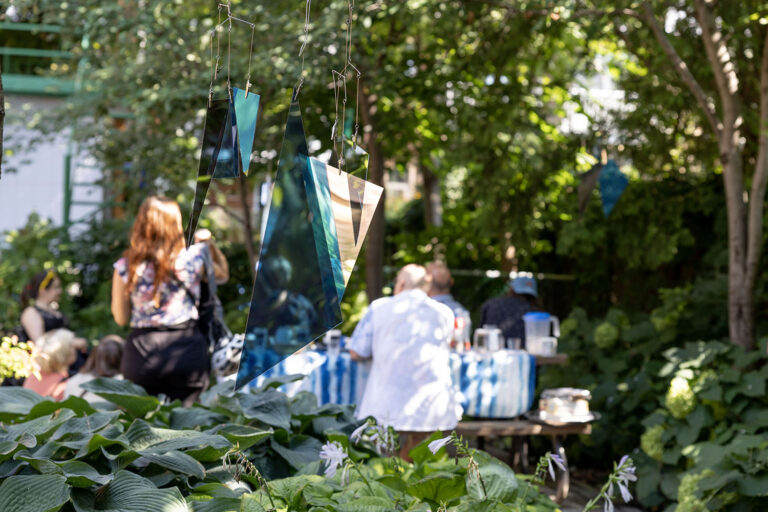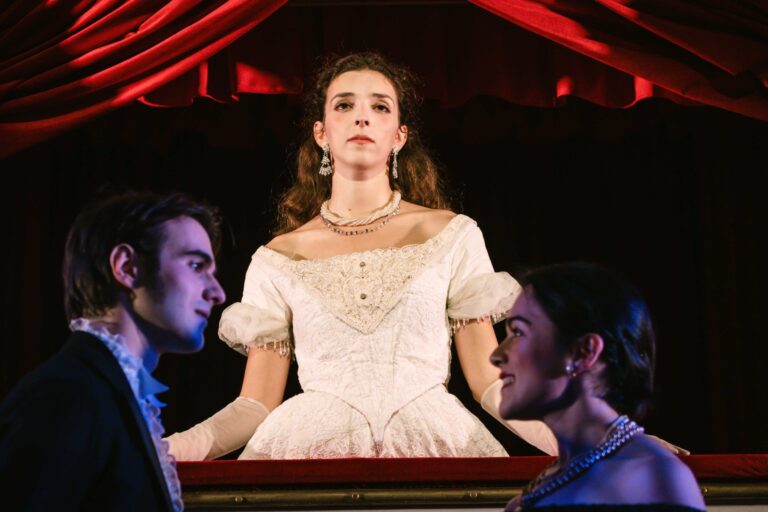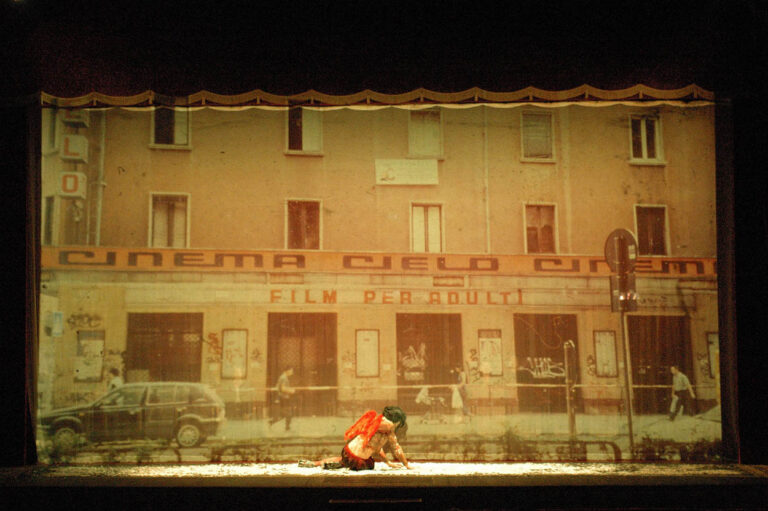In occasione delle date canadesi della performance, pubblichiamo la versione inglese dell’articolo Soffrir d’amicizia. Onde, la nuova creazione di Wundertruppe, di Ilaria Cecchinato uscito su Gagarin Magazine per il debutto italiano.
A few months ago, in an article published in ‘Die Zeit’, the German journalist Paula Fürstenberg wondered why friendship was considered «something less than a romantic relationship». The question led her to an observation: in our society, there is a hierarchy of human relationships that makes it difficult to accept and recognize the importance of the bond of friendship and the emotional implications, both positive and negative, it has on the human soul. «No words can describe the pain one feels when a friendship is in crisis or ends. In the case of love pain, a veritable crisis management machine is immediately activated: there are talks about resolving conflicts or coping with separation, friends turn up at the house with a comforting beer, and there is even the possibility of couples therapy. There is no such thing as the pain of friendship».
Defending the value of friendship seems to be a real issue today, especially in an era marked by loneliness, hectic life and often distance from one another. So, it could be not a coincidence that after investigating the condition of loneliness, the Italian group Wundertruppe – the writer and actress Natalie Norma Fella and the writer and playwright Giulia Tollis – have come up with Onde, a performance and sound installation about friendship and loss. After the Italian premiere in November 2024, the show is now on tour in Canada (Ottawa) from the 29th of January to the 1st of February. This new artistic exploration has been developed between Italy, France and Canada, in collaboration with Voyageur Immobiles and the sound artist Marie-Hélène Massy Emond.
The concept
«Onde came from an encounter with a book» Natalie says «The Waves written by Virginia Woolf . It is a text composed of short sentences with captions that mark the arc of the day on a seascape. The protagonists are six friends, three women and three men, who take turns describing each other with evocative phrases such as “I see a circle over my head” or “I see a light in the trees”. I imagined these exchanges taking place in a dark room as if I were lying on the floor with six other people next to me, in a circle, each trying to remember something. It all seemed very sonorous to me, linked to the evocation of some memory, and we carried that aspect with us into the creative process».
What led Wundertruppe to explore the theme of friendship was also the exploration that took place in their previous work, Piazza della Solitudine (Loneliness Square), a touring headphone performance that placed the personal condition of loneliness in dialogue with the public space of the city. This work came from Natalie’s desire to explore that feeling, which she felt personally, on an artistic and existential level. «They may seem like two opposing themes» Natalie notes «but over time we have discovered that they are instead profoundly close».
This becomes clear in the reading of Woolf’s novel, in which one of the characters suddenly dies. From this point, the two artists began to explore themes like separation, break-up and estrangement that can occur within a free relationship such as friendship.
«It is a subject that is much less talked about than breaking up in a loving relationship» Giulia explains. «But since friendship is also a form of love, we wanted to explore this bond when it is broken or about to be broken. It is complex to understand why you disappear from someone’s life and it’s interesting to find out what happens in those moments of crisis, how you recompose yourself, how you finally find yourself again».
The theme guides the form
Wundertruppe’s projects range between audio walks, performances, installations and theatre, and are staged in non-theatrical spaces. Each creation is made up of different artistic languages and the form «is never chosen in advance», Natalie explains, «but it comes from the research, the materials we collect, but above all from the theme we decide to explore».
The creative process that began with the reading of The Waves was followed by a series of residencies in Italy, France and Canada, during which the artists – inspired by the novel, which spans the different stages of life – met people of different generations to reflect together on the theme of friendship. This practice, named relational art, is now consolidated in the poetics of Wundertruppe, as the planning of projects based on a theme and the construction of performative experiences outside traditional theatrical environments.
«The process we use is so powerful», Giulia says «because we work on all the themes together with the people we meet in our workshops before the topics become a finished work. So, as part of the process of activating a theme, we collect living material – interviews, testimonies and stories. Then we add our own readings, reflections and experiences. The result is a precious and delicate material that represents a very fruitful possibility for us as authors».
In Onde, the various pieces recovered during the creative process take the form of an installation-performance in which the spectator is immersed in a sonic environment of mainly collective listening. It is composed of testimonies, original writings and short live moments. «The archive of texts and contents collected in Onde» Giulia says «also takes on life and body through the reading by the audience of some letters, never sent, written by the participants of our workshops. We have imagined a montage in which these letters respond to each other, creating a sonic space in which the words of friendship, separation, break up and loss manifest themselves».
«The emotions and reactions of those who read or receive the letters», Natalie adds, «change every time with the performer, creating a unique dialogue and exchange. Although the texts are always the same, each time they tell a different story of friendship in which one person becomes the bearer of another’s words».
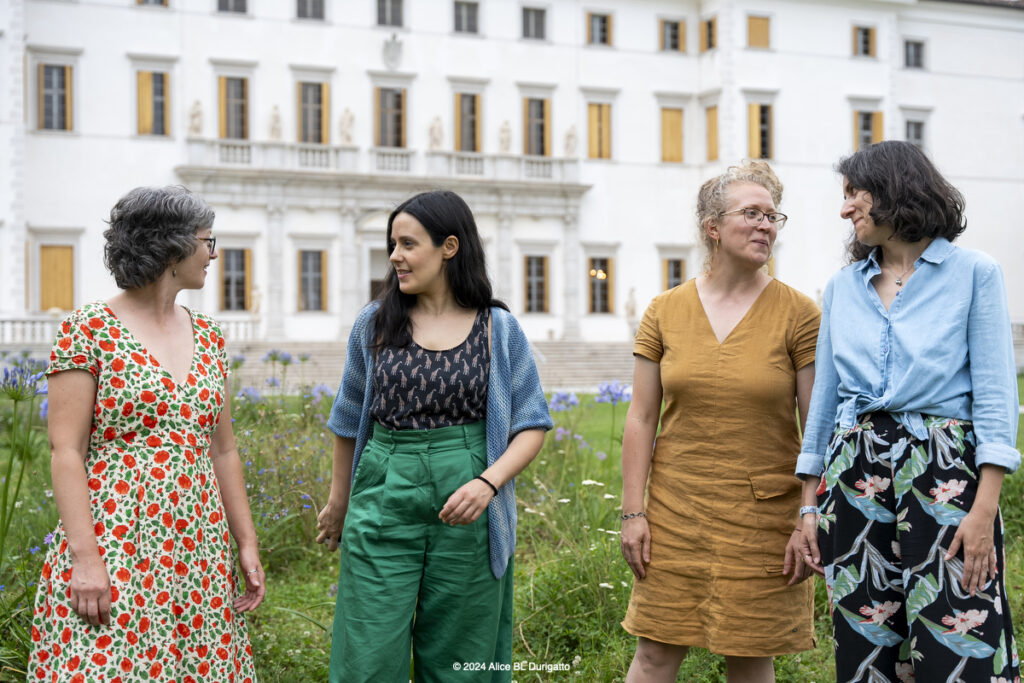
Relational art and the dramaturgy of experience
The encounter and collection of sound material is a practice that Wundertruppe has been pursuing since its first projects: from 40 d.t | Galateo per un terremoto, which Natalie realized together with Sara Rainis to tell the story of the 40th anniversary of the earthquake in Friuli Venezia Giulia; to the first work conceived with Giulia, the evolution of 40 d. t, Piante Pioniere; to the above-mentioned Piazza della Solitudine, a performance that «laid a solid foundation for the artistic encounter between Giulia and myself, even though in previous works, together and independently, we had already found resonances and common interests that were then channeled into these latest “founding” projects».
This long relational work begins with the discussion between the artists on the chosen theme, continues with the meeting with the communities and ends with the involvement of the public in a work that is a real experience to be lived in the first person.
«Meeting the communities and incorporating their contributions into the final creation means working on the relationship right from the material production stage», Giulia explains. In her role as dramaturg, she keeps track of everything that is collected, to imagine an order and a possible design. Her role is a guiding one, as each composition is constantly revised and rethought together: «The last word does not lie with any one of us but in the organic nature of what we are doing».
At one point, Natalie and Giulia take a large white piece of poster board and lots of colored post-it notes and begin to organize all the material they have collected. It is a delicate moment, especially because they are facing an ethical challenge to the people they meet. This is an essential step in understanding what to keep, what is missing, what works and what is the basis for building the experience to be proposed to the audience.
«As we put things in order», Natalie says «the focus on relationships, both those we have had and those we will have with audiences, becomes central again. We define our work in terms of the “dramaturgy of experience”. If in traditional theatre you have to find out a way to bring the audience into a world, in this case, it is a question of thinking about where to take the audience and what conditions we put them in, how far we can go».
«Welcoming and saying goodbye», Natalie points out, «are often part of the dramaturgy, especially in Onde, where friendship is about meeting and loss is about saying goodbye. So what we are proposing is a three-dimensional experience, because it is happening on three levels: content, context and emotion».
Sound testimonies
The sound elements collected always have a strong testimonial component, although they never flow into a strictly documentary narrative. «The listener is confronted with a cross-section of a moment that actually happened, inserted into a dramaturgical composition», Natalie explains and continues: «In the mosaic of the various elements, the listener can give a collocation to the materials, thanks to the pure sound, which gives back information about the environment and the context, for example. In the case of Onde, there is also the language, which changes and tells something in itself. Every “subliminal” thing layers and enriches the narrative and its meaning. And only sound has this evocative power, connecting us to what is difficult to say, to something you hear but can only recognize on a more irrational, emotional, “gut” level».
The sound of Wundertruppe’s performance practice comes from the combination of Natalie’s musical and theatrical training and is a constant in her work, even in the more theatrical pieces such as WK – Wunderkammer, an adaptation of the novel A Jury of Her Peers by American author Susan Glaspell: «There was already a strong musical component here, with ad hoc constructions, reworkings of ambient recordings and the presence of the male characters only as narrators. In addition, there were several preparatory stages, consisting of meetings and workshops with communities, of activation around the themes of the book».
«When I discovered the work of Wundertruppe», Giulia says, «I was fascinated by the work of Natalie and Marie Hélène. I saw them as “sounds collectors”. have this image in my head of them capturing voices by walking around with all their “furry instruments”. I was so fascinated by this aspect of the creative process, especially the possibility of telling a story by giving space to several voices at the same time, or creating environments, situations and landscapes just with sound».
Headphone works such as Piante Pioniere and Piazza della Solitudine, or site-specific works such as Onde, move away from the typical dynamic of being told what to do or given options to choose from. «Our work is more about constructing a context in which the individual is free to decide how to position themselves and how to be», Natalie explains. «We work with live takes, which we then layer with editing players, or we create pieces of music that dialogue with recordings of environments or the sound of particular objects. In Onde, for example, we recorded a meal with no words, just the sound of dishes. We don’t work with reconstruction yet, we find it bizarre, so we let the editing be our writing».
«Oh friendship, how piercing are your darts»
When people thought about how to keep relationships alive in isolation between 2020 and 2021, friendships were not taken into account «and many suffered», the journalist Fürstenberg wrote. «In surveys, 30 percent of respondents said that their friendships had become less close or had stopped altogether during the pandemic. The English language has a term for this phenomenon: “friendship recession”». Yet one of the many antidotes to loneliness lies in the strength of a free and non-exclusive bond such as friendship. However, as with any love relationship other than that of a couple in the traditional sense (let us not forget that globally we are still in the hands of governments that do not recognize LGBTQ+ love), we are still far from realizing the value of friendship on a personal level and in terms of civil rights and care.
Onde then is as courageous as it is necessary to break down certain barriers. It takes us on a journey through the words of friendship that remain unspoken, never said, let go; through the pain of loss, the struggle to leave and understand each other; through the joy of meeting and finding each other in the «piercing darts» of friendship.
L'autore
-
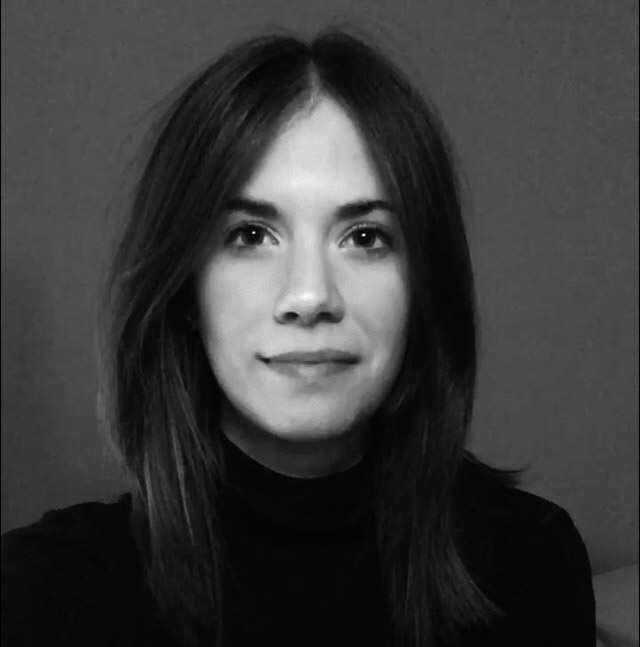
Giornalista e ricercatrice indipendente, scrive di cultura, teatro e attualità per testate online, riviste di settore e accademiche. È stata speaker e redattrice per Radiocittà Fujiko, ha co-curato un documentario radiofonico per RSI ed è audio-editor per radio e associazioni. Cura progetti di studio e divulgazione sull'audio fiction e sul rapporto tra teatro e podcast. Laureata in Dams e in Italianistica, si forma in giornalismo, radiofonia e podcasting attraverso workshop (Chora Academy, Centro di giornalismo permanente, Dinamo Press), masterclass (La Biennale di Venezia, Lucia Festival), corsi professionalizzanti (audio engineering base AFM Bologna).


